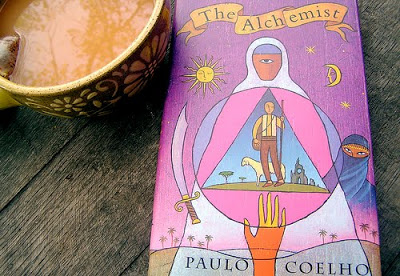Paulo Coelho on Digital Media and Readership

Ten years ago, in 1999, my agent returned from Russia bearing bad news: The publisher of my novel ‘The Alchemist’ had decided to discontinue publication because fewer than 3,000 copies had sold.
The odd thing is that, only weeks before, I had found a pirated edition of the Russian translation on the Internet, and my immediate reaction had been to attribute the low sales of my books in Russia to piracy.
Like any other author, I wanted my books to be read. Since a physical book wasn’t available, and I had no idea when the new publisher would manage to buy the paper he needed to print the new edition, I thought: Why not make a virtual version available? Acting on impulse, I posted the pirated translation on my Web site, where anyone could download it without paying.
At the end of 2000, my Ukrainian publisher was thrilled to report that we had sold 10,000 copies! A year later that had risen to 100,000. By 2002, 1 million Russian-language copies had been sold.
During that time, I received e-mails referring to the pirated edition I had placed on my Web site. Many of those messages said: “I’m so glad to have found your work.” My conclusion: Russia was a vast country with enormous distribution problems, and the Internet was helping to bring the book to readers.
Excited by this discovery, I decided to do the same with my other books. But I ran into a legal problem: The Russian translation had been posted on the Internet by the translator, but what about translations to which I did not have the rights? My solution was to gather all the links to file-sharing P2P (peer-to-peer) sites and create my Pirate Coelho Web site.
This became a hit on social networking sites, which spread the news. By the time I spoke publicly of this at the 2007 Digital, Life, Design conference in Munich, a million unique visitors per month were visiting the site. There, they could find almost all my books in various languages – from German to Malayalam. Meanwhile, the printed versions were selling in ever greater numbers.Since none of my publishers had complained up until then, I assumed they must know about the Web site but had decided not to intervene.
The day after newspapers published my remarks in Munich, my telephone began ringing. Some of my publishers asked: “Do you know the risk you’re running? Don’t you realize that this is going to decrease your sales?”
Pirate Coelho had been online since 2005, I argued, and sales had continued to rise. That meant the traditional publishing model benefitted from file sharing. I must confess that, much as I respect my publishers, their view of reality bore little relation to what was happening in the bookstores. By that time, I had sold more than 100 million books, and that gave me a few privileges.
How can I explain what happened? It isn’t only the financial world that finds the word “greedy” problematic, but any industry that tries to claim a monopoly on anything, be it information or a specific product. In my case, people started reading my books on the screen, liked them and went on to buy a print copy — handier and cheaper in the long term. And so it went for several years. Somerset Maugham said: “We do not write because we want to; we write because we must.” And, I would add, because we want to be read.
Read the entire article here. Also read Paulo Coelho *hearts* Piracy
Image Source: valkyrieh116









